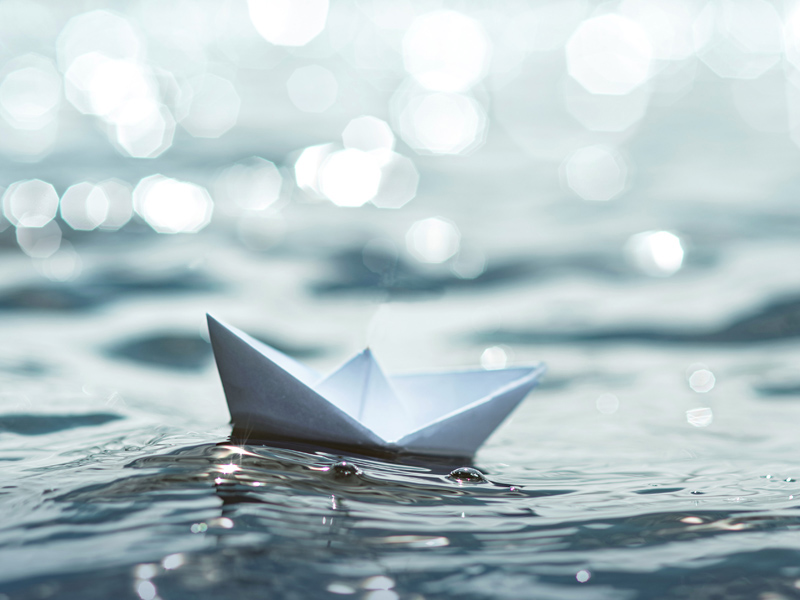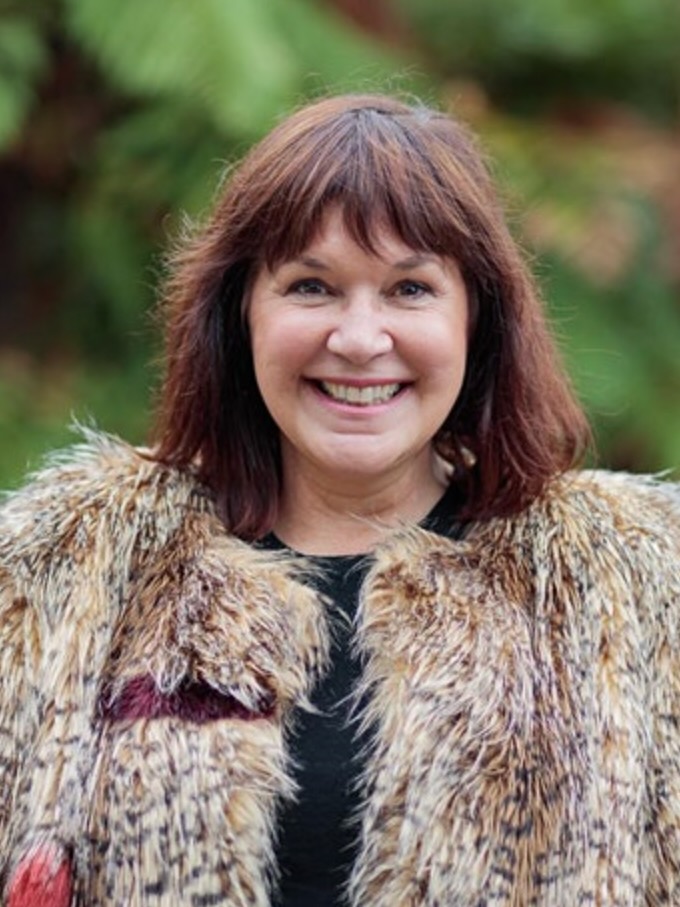
by Chellie Spiller
- 24 August 2022
Share:
The busy nature of modern life, combined with an almost constant bombardment of information, has left many people in the 21st century with a consciousness that is extremely noisy and prone to distraction. People rush around as if they are in a storm, panicking and reacting to events and to each other.
Leaders can learn to recognize their own potential to react to situations and seek to be free of clouded judgement. In doing so, they ensure that they remain open and aware of what is happening, leading from a place of stillness.
In our book Wayfinding Leadership, my co-authors and I explore this and other concepts drawing upon the great wayfinding tradition of the Oceanic navigators who, without any instruments such as compasses or maps, were finding their way across 25 million square kilometres of ocean long before European ships had entered the Pacific.
For centuries, people have navigated using the rising and setting of stars and the patterns of waves on the oceans and sands. These wayfinders have observed the natural world, worked out their location and destination, set a course to get there, and then responded to signs along the way. Today’s wayfinders are the living face of a philosophy of being that has been orally transmitted from one generation to the next through millennia.
Wayfinders go beyond the known. Theirs is a human story of going on journeys of discovery to new horizons. The principles of wayfinding have developed through action and practice in deep intimacy with an ever-changing world. It is as much about the journey as it is about reaching the destination.
To acquire the wise perspective of a wayfinding leader, including mental resilience, courage, and resolve, is to operate from a relaxed state in all circumstances — whether in the midst of a raging storm or caught up in the unpredictable and dangerous winds of the doldrums. Master wayfinders have the ability to move from stillness; they possess a steadfast calm clarity.
The moving (or leading) from stillness resonates deeply with participants who attend our workshops and keynotes here in New Zealand and internationally. People worldwide are deeply exhausted by pushing through the storms of life.
When the Going Gets Tough
Paradoxically, when the going gets tough, the tough get relaxed. When we relax, we are more likely to find a creative solution. When we approach life from a base of stillness and presence that is very grounded and clear, we can better see what is going on and respond appropriately.
It is essential that leaders and everyone in a team act from a grounded stillness, not from reactivity, agitation, distraction, or being fixated. The invitation of our book is to cultivate this purposeful and active stillness.
It is a condition of relaxed “sitting in the belly.” Rather than seeking to be detached from a distracting world, it is about being engaged, integrating information, and allowing an intermingling with deep knowledge to form creative pathways.
Many of us will need courage for our journey together in these times — it is not smooth sailing.
Courage
The ancient wayfinders who set off to lead the way to new worlds didn’t let fear stop them from journeying to new places. They went beyond the known, on voyages of discovery to new horizons. The wayfinding leader cannot be overcome by the enormity of the challenges they face but must rise with courage to model the way and ensure the successful fulfilment of the purpose of the journey.
A key wayfinding mantra by the great Satawalese celestial navigator Papa Mau Piailug is: “Do not pray for fair weather; pray for courage.” He believed that with courage, we can travel anywhere and not get lost.
Courage requires summoning inner strength to make the journey and to stay on board during challenging and difficult times. Many of us will need courage for our journey together in these times — it is not smooth sailing.
Each one of us, at one time or another, has had to venture outside our own comfort zone. However, as we all know from experiences of when our mettle has been tested, we recognize that life’s challenges are the true opportunities to find new ways, innovate, and look for creative solutions.
These challenges can be like crucibles that forge our best self. As we slow down, pause and look around, and get in touch with our “internal relaxation,” we cultivate a wise grit in carrying ourselves through the world.
Tune Into the Right Frequencies
How do we know which signals to listen to? Which ones to tune out? This is very important — what are we tuning into and giving oxygen to? What do we need to tune out because it takes our life energy away? Sometimes these signals are very weak — and our task is to notice and amplify them.
Wayfinding leadership is like finding the right radio channel and minimizing the noise and static, so we can focus on what we need to know in any given situation. Tuning into the right frequencies means focusing on what is truly important, meaningful, and helpful. A powerful way of helping us tune into the right frequencies is to master the skill of moving from stillness.
Become an Observer of the World
Today we are each called to keenly observe and anticipate changing conditions, respond decisively, and command critical moments with fierce courage and wisdom. These are skills required of every leader today. Every leadership moment, especially the challenging ones, sharpens our mastery and hones our “response”-ability.
In our workshops, we invite participants to close their eyes for around 30 seconds. When they open their eyes, they take a moment to jot down three things they now notice using all of their senses. This very short exercise brings awareness to our state of being, how we are in our bodies, thoughts, emotions, and so forth. This exercise highlights for people that by taking brief moments to pause, we connect to that place of stillness using all of our senses. It’s a beneficial practice for those testy meetings that can get tense and overheated!
In Wayfinding Leadership, we quote Robert Ballantyne who, writing in 1874 in a work called The Ocean and Its Wonders, speaks of the deep calm at the bottom of the ocean. This passage is an invitation to find that place of deep calm within even as the surface of our daily lives may be roiling with perturbations:
… the lowest depths of the ocean are always in a state of profound calm. Oceanic storms do not extend to the bottom. When the tempest is lashing the surface of the sea into a state of the most violent and tremendous agitation, the caverns of the deep are wrapped in perfect repose.
To find out more about Wayfinding Leadership watch the TEDx Talk or visit our website.
Spiller, C., Barclay-Kerr, H., & Panoho, J. (2015). Wayfinding Leadership: Groundbreaking Wisdom for Developing Leaders. Huia Publications.

Chellie Spiller is a professor of leadership at the University of Waikato Management School, Aotearoa New Zealand. Her research explores wayfinding, authentic leadership and how businesses can create sustainable wealth and wellbeing. Chellie is a co-author of a book on traditional Polynesian navigation Wayfinding Leadership: Groundbreaking Wisdom for Developing Leaders (2015) with Hoturoa Barclay-Kerr and John Panoho. Wayfinding Leadership is a best-selling book for Huia Publishing. It was shortlisted for the Māori Book of the Year awards, 2016. Wayfinding Leadership is included in the list of 150 books by leading Māori authors assembled by the Royal Society of New Zealand to celebrate 150 years of Māori non-fiction publications. Wayfinding Leadership has catalysed a new approach to leadership development that is growing fast and programmes are currently being taught nationally and internationally. In 2013 her co-edited book with Donna Ladkin, Reflections on Authentic Leadership: Concepts, Coalescences and Clashes (Edward Elgar Press) was short-listed for an international leadership book award. Chellie’s latest book is Practical Wisdom, Leadership and Culture: Indigenous, Asian and Middle-Eastern Perspectives co-edited with Ali Intezari and Shih-Ying Yang. The stories from contributors around the world are illuminating and inspiring.


